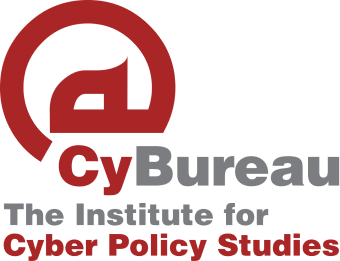On-line Social Networks in Syria
Syria was among the last countries in the Middle East to introduce the Internet. On February 24, 1996, the Syrian Telecommunications Establishment (STE) received permission from the prime minister’s office to do so, and to serve as the body responsible for the Country Top-Level Domain Code (sy.). Two weeks later, STE signed an agreement with the Syrian Computer Society (SCS), headed by the country’s future president, Bashar al-Asad, to connect governmental institutions to the Internet in order to conduct an initial evaluation. The result was a decision to move forward, for the following declared reasons:
1. the Internet made an enormous wealth of information and services accessible to students and researchers;
2. it was an important venue for commercial publicity and trade;
3. Syrian institutions could employ the Internet to promote Syria’s cultural, archaeological and historical heritage and thus advance the tourism industry;
4. Syria’s positions and rights on vital political issues could be advanced, thus countering the “mistaken positions, lies, and distorted views of Syria which appear on Internet sites supported by international Zionism.”[1]
Eighteen months later, on November 17, 1997, Syria began linking up 150
selected government bodies to the Internet. At the beginning of 1999, accessibility was extended to the broader public, and included e-mail, surfing and file transfer (FTP) capabilities within the country itself.
In its approach to the Internet, the Syrian regime, like other governments in the region, seeks to counter material critical of it that is widely available on-line, while insuring that technological innovation in the country is managed with great care in order to fend off unwanted cultural and political penetration and thus maintain tight control over the population. Hence, the authorities agreed to make the Internet accessible only after confirming that they had the ability to control and monitor its content. Adding to the limitations on Syrian users were the high costs of purchasing a computer and connecting to the Internet, and the country’s inferior communications infrastructure. To be sure, Internet usage has expanded since the beginning of the decade by no less than 12,000(!)%, partly because the costs for doing so have been reduced, and partly because of the strong desire for access among Syria’s relatively educated population. However, the regime has made it clear that control over access will remain in force, and that some sites would remain blocked, in line with “country’s traditions and habits”[2]
Hence, only 16.4% of the population currently uses the Internet. Moreover, the restrictions imposed on them by the authorities render Syria, in the words of ‘Reporters Without Borders’, among the “Internet’s enemies”.[3] Syrian authorities block websites containing material on human rights, freedom of speech, Syrian opposition organizations and Syria’s Kurdish minority, as well as pornographic and Israeli sites. In recent years, they also began to block international social networking sites, in light of their considerable popularity in the country. In 2007, Syria was even termed the “largest prison in the Middle East” for Internet users and bloggers[4] (as well as one of the 10 worst countries to be a blogger in 2009).[5] Indeed, bloggers often serve lengthy prison sentences and are hounded by the authorities in a variety of ways for their activities.
From the opposite direction, there are Western internet companies which prevent access by Syrian citizens to some of their services. For example, in April 2009, the business-oriented social networking ‘LinkedIn’ blocked access from Syria, but quickly relented following protests by users, which were expressed through Twitter, among other means. LinkedIn explained its initial action as a human error. But internet firms such as ‘Google’ and ‘Sun’ routinely prevent Syrian users from using some of their services, in line with US government restrictions on supplying goods and services to the country.
Notwithstanding these limitations, the penetration of the Internet and the spread of social networking sites in Syria has created an important tool to disseminate information within the country and beyond. Users have often found ways to bypass the authorities’ strictures limiting the freedom of expression and organized activities through the formation of on-line pressure groups which address social and economic issues facing the country. The social networking site ‘Facebook’, which operates in scores of languages, including, of course, Arabic, is especially popular in Syria.
The Syrian government’s recent campaign against Facebook and call to boycott it has brought the issue of social networking sites onto the public stage. The matter surfaced following a decision by Facebook’s management to view the Golan Heights as part of Israel, registering users from Israeli settlements there as residents of Israel, and not as residents of Syria, as had been done previously. It was even reported that Syria would block the site entirely. In fact, access had already been hindered for two years, both directly and via proxy sites which make it possible to use Facebook anonymously.[6]
The restrictions on social networking sites were designed to try and prevent Internet users from maintaining contact with one another, whether within the country or beyond. Indeed, it should be noted that on-line connections had been established in the past between Israeli and Syrian residents through Facebook proxy sites. Facebook includes hundreds of Syria-related groups, whose participants, both in-country and outside of Syria, number from the very few to thousands. They cover the gamut of subjects: tourism, business, technology, art and music, sports and student life. These sites also enable users to organize on-line protests, sometimes with considerable effect. For example, the rape of a teenage girl prompted a public discussion regarding the sexual exploitation of children, thanks to an on-line campaign involving thousands of people. An on-line campaign against a draft law dealing with matters of personal status appears to have been decisive in the government’s decision to abandon the proposed statute. Other on-line battles have included one advocating the lifting of all on-line restrictions, for which a personal appeal was even made to Syrian president Bashar al-Asad; and a call by local bloggers to boycott suppliers of cellular phones over matters of price, quality and service. In addition, Syrian Facebook users have organized on behalf of local bloggers who were imprisoned for their activities.
‘YouTube’ is also employed by Syrians seeking to promote causes which are opposed to official policies. For example, clips documenting the repression of Syria’s Kurdish minority have been uploaded to the site. In response, it was reported in August 2007 that the site was blocked by the authorities because it contained a clip which showed the dress of the president’s wife flapping in the breeze during an official state function. Similarly, in May 2008, it was reported that access to the Arabic-language Wikipedia site was blocked by all internet service-providers in the country, without explanation, but in February 2009 the restriction was removed, an unprecedented step.
On-line social networks in Syria serve as a tool for organizing pressure groups, something which simply cannot be done in daily life, owing to the regime’s heavy-handed oversight and repression. These networks provide further tangible evidence of the strength of the Internet not just as a tool to transmit information within extremely restricted political environments but also to create a basis for social change in these countries. As such, they constitute a direct challenge to highly centralized authoritarian regimes such as Syria. This challenge can only grow in the years ahead, as the Internet inevitably expands its reach in the country.
[1] Dr. Hasna Askhita, “L’internet en Syrie,”, Assad National Library, Damascus.
Paper delivered at the International Federation of Library Associations & Institutions meeting, “Réseaux pour le développement des Bibliothèques dans les Etats Arabes.” Beirut, 2-4 March 2000.
[2] SyriaLive.net, “Syrian Internet Installation and Subscription Rates to be Scrapped,” Computer and Internet – 2002, 5 March 2002.
http://web.archive.org/web/20071212172006/http://www.syrialive.net/computer/archive/com-puter_2002.htm
[3] http://www.rsf.org
[4] Reporters Without Borders, “Syria,” 1 February 2007.
http://www.rsf.org/Syria,20777.html
[5] Committee to Protect Journalists, “10 Worst Countries to be a Blogger,” 30 April 2009.
http://cpj.org/reports/2009/04/10-worst-countries-to-be-a-blogger.php
[6] http://www.gotofacebook.co.za, http://facebookoxy.com

